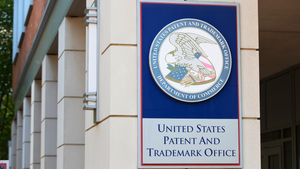A group of organisations representing different American copyright industries have set out their top piracy gripes in a letter to the US Patent And Trademark Office. It confirms that stream-ripping is still the music industry’s greatest concern, while also stressing that “reverse proxy services and the lack of meaningful access to domain name registrant data are ongoing challenges for the creative industries”.
The trade groups add that tackling online piracy requires “strong legal incentives” to ensure that various stakeholders – especially the providers of internet services – are persuaded to collaborate with copyright owners in order to hinder and halt those involved in online copyright infringement. And “governments have a critical role to play in encouraging such cooperation”.
The International Intellectual Property Alliance – which has the Recording Industry Association Of America as a member – was responding to a call for submissions made by the Patent And Trademark Office in order to inform “future strategies in anti-counterfeiting and anti-piracy”. IIPA made its submission last month, with its letter published by Torrentfreak yesterday.
It runs though some specific piracy concerns for book publishers, movie studios, TV producers and gaming companies, before getting to stream-ripping, which has been a particular worry for the music industry in recent years.
This relates to websites that allow people to grab permanent downloads from temporary streams, in particular downloading the audio from videos on YouTube. The operators of stream-ripping services argue that they don’t themselves infringe copyright, because they don’t host any infringing material and have legitimate as well as illegitimate uses.
Nevertheless, courts in some counties have concluded that, by facilitating and/or encouraging the infringement of others, stream-ripping sites can be liable for authorising or contributory infringement. Meanwhile, in the US, more recently the key argument has been that stream-ripping sites circumvent technical protection measures put in place by platforms like YouTube to stop downloads, which breaks rules in the US Digital Millennium Copyright Act.
“Stream-ripping services infringe the making available right and circumvent the technical protection measures used to prevent download of music streams”, the IIPA letter states. “These services have proliferated in the last few years, making stream-ripping the dominant method of music piracy globally”.
The technical protection measure rules in the DMCA seem to be providing a way for copyright owners to tackle stream-ripping – with those rules being crucial in the legal battle between the US record industry and stream-ripper Yout. However, that approach isn’t necessarily available in other countries around the world.
“While legal protection of technical protection measures, where properly implemented, enables effective enforcement actions against distributors of unlawful circumvention technologies”, the letter goes on, “these efforts are often undermined by countries that have yet to implement adequate protections against circumvention activities and services”.
As well as seeking legal powers to go after piracy sites through the courts, the copyright industries also want more help from legitimate internet companies whose services may be utilised by illegitimate operators.
That includes companies that provide so called reverse proxy services. These, the IIPA letter states, “are a serious concern … because they act as a firewall and protect websites by hiding the IP addresses and hosting providers of these websites”.
“While reverse proxy services serve a legitimate purpose, many pirate sites utilise reverse proxy services to hide true hosting information and to transmit large files faster”, it adds. “Such uses make enforcement against these sites extremely challenging. IIPA requests that the US government include reverse proxy services in its efforts to address this widespread, systemic problem and to stop the misuse of such services”.
Torrentfreak notes that the company that provides services of that kind which is most frequently criticised by copyright owners is Cloudflare. And while it isn’t specifically mentioned in the letter, it would definitely be covered by that particular IIPA request.
An organisation that is specifically named in the letter is ICAAN, which oversees the internet’s domain name system. This criticism relates to the challenges copyright owners face in identifying the companies or individuals operating at any one domain, which can be required when seeking to pursue a copyright action against the site or service using that domain.
The problem, reckons IIPA, is ICANN’s “failure to establish and implement an effective mechanism for [domain] registrars to collect accurate data and for rights holders to access the data for the protection of intellectual property”.
Keen to ensure that the Patent And Trademark Office considers the responsibilities of otherwise legitimate internet companies and organisations when developing its anti-piracy strategies, IIPA adds: “Governments have a critical role to play in encouraging such cooperation, ensuring that their laws are fit for the digital age, and confronting the services that promote, induce or benefit from infringers who exploit labourers and divert consumers from legitimate providers”.
“Attention to these issues”, it concludes, “is an essential element in correcting the present dysfunction in the online ecosystem that permits websites dedicated to infringement to continue to operate and be profitable”.



